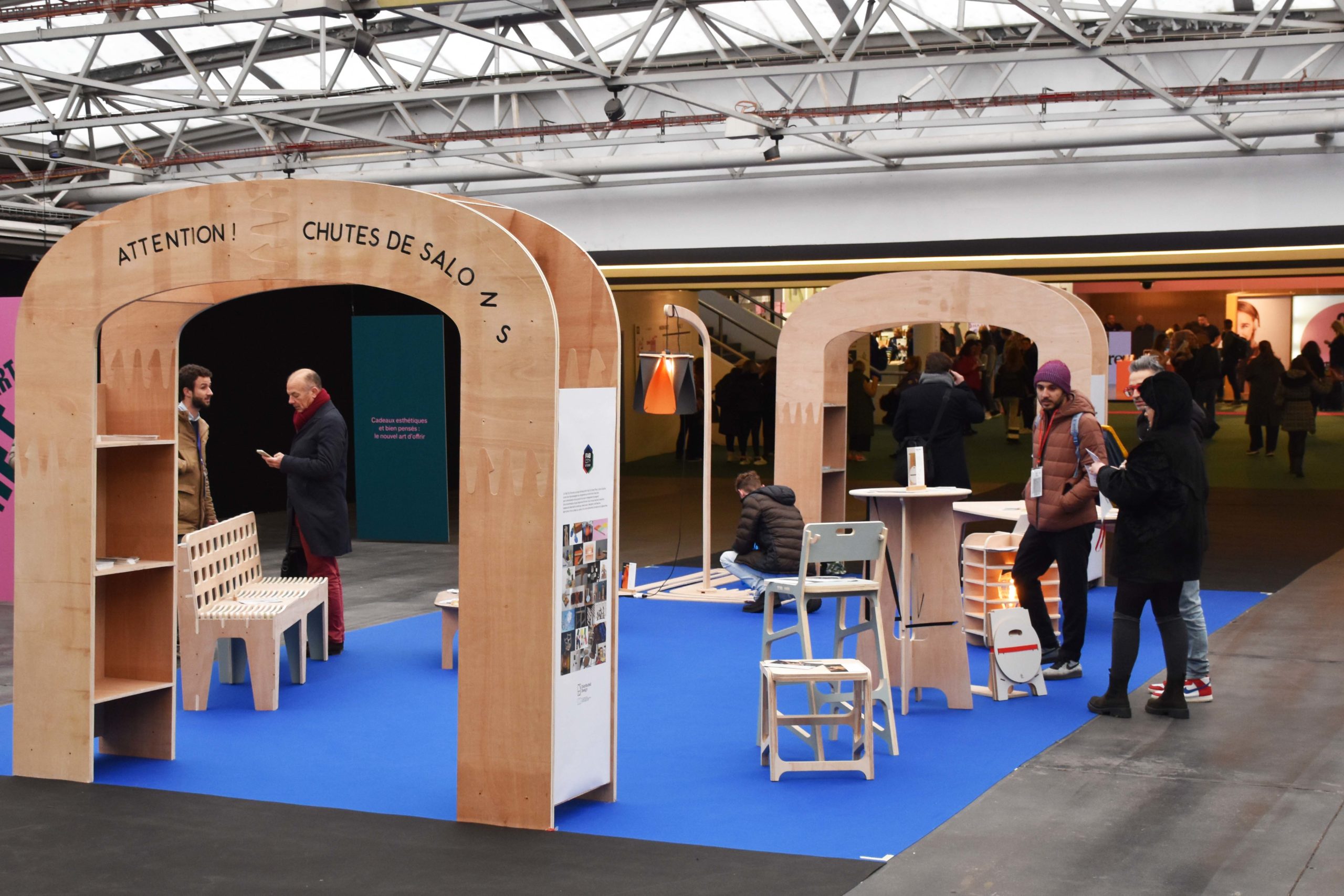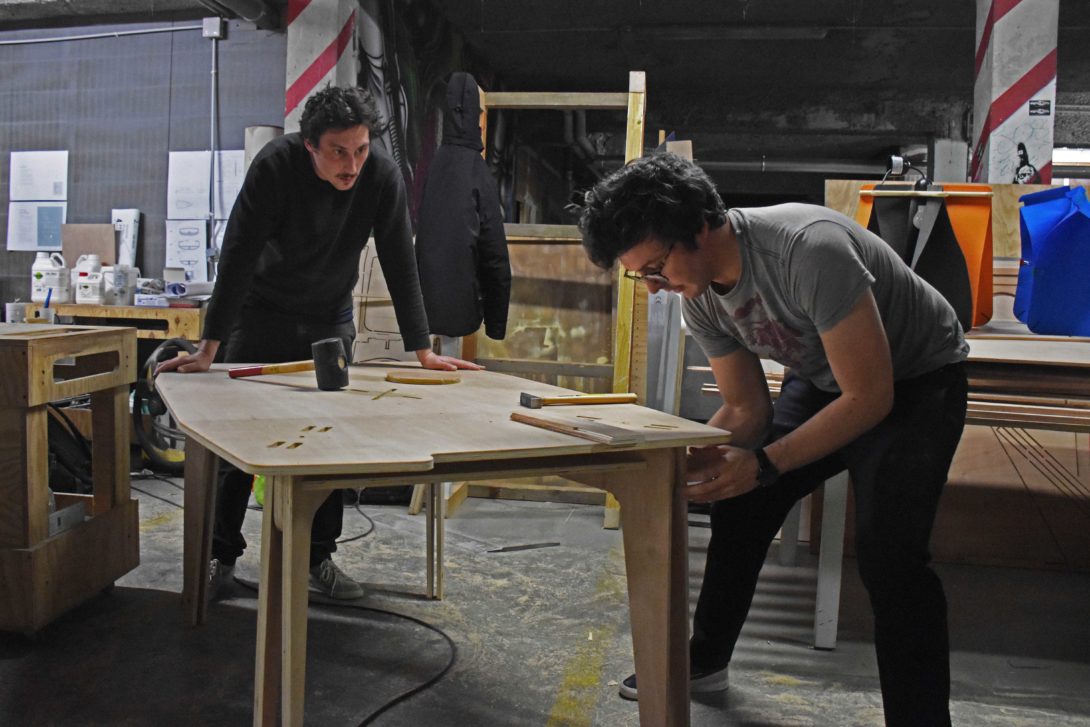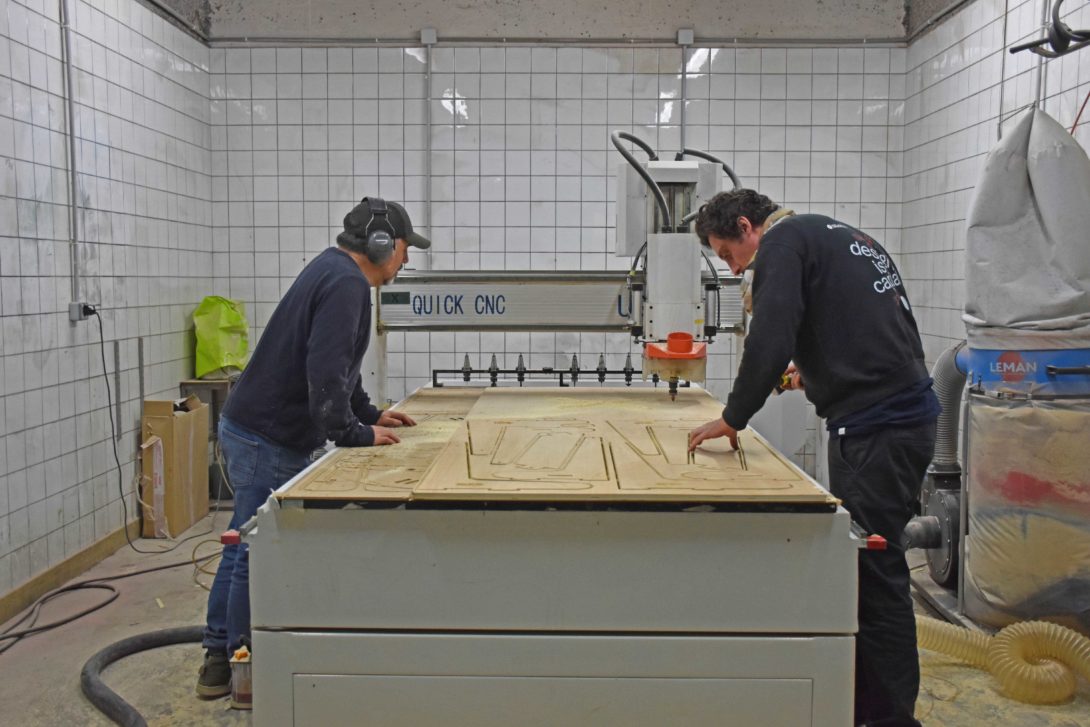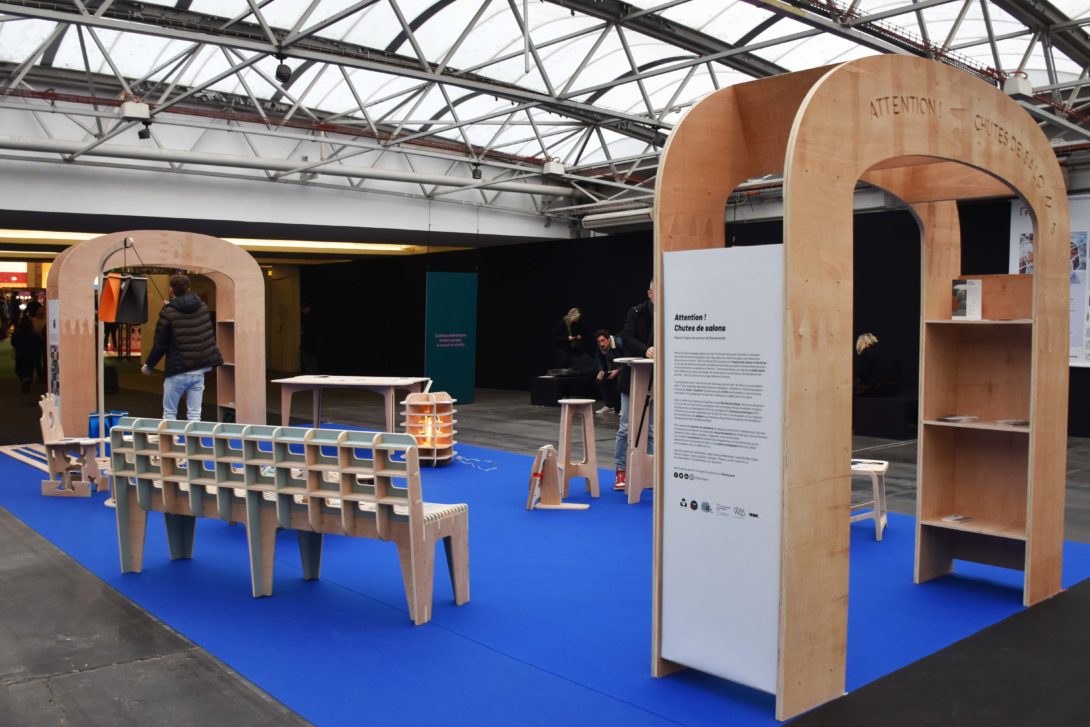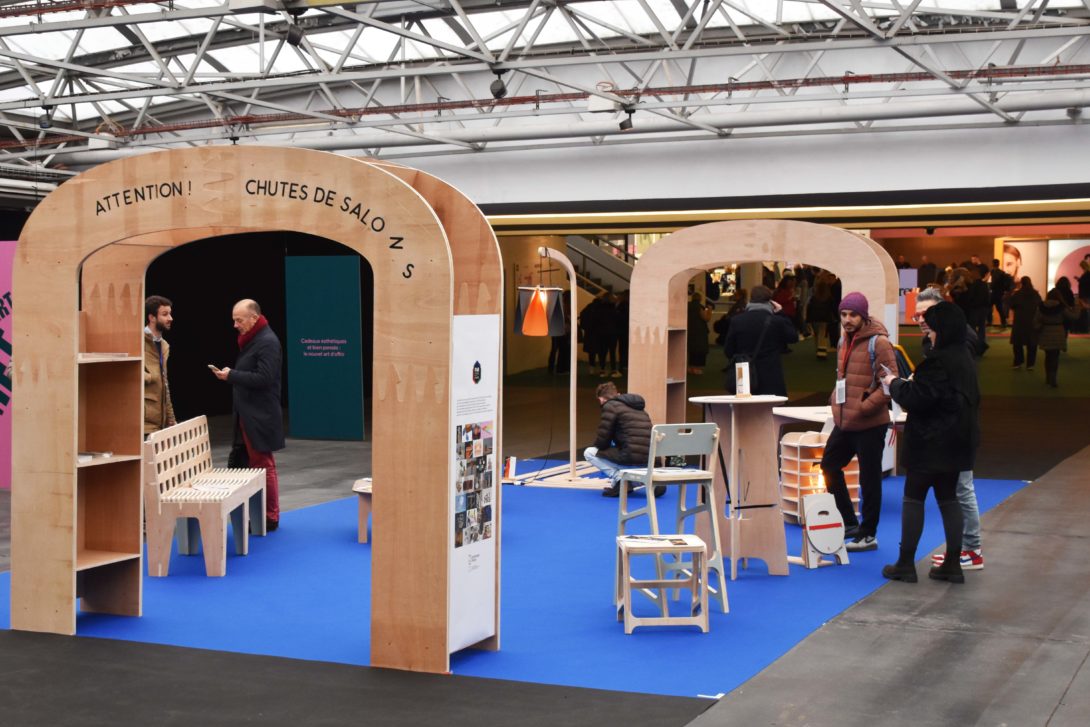Since June 2022, we have been working together with the logistics team of the Maison&Objet Fair organisers. The main objective was to design a system that would be as coherent as possible with the resources available and take into account the needs of the visitors and the organisers. The approach adopted is, in itself, quite simple: collect waste materials from the September 2022 edition and transform all this material for the January 2023 edition. The first problem then appears: storage. The network of urban workshops that we are (Woma, VolumesLab, Ars Longa) has little storage space, but we had to collect and store this material in order to make it available for the bootcamp. We decided to hold the bootcamp in Ars Longa’s workshop in Bagnolet, based on two main criteria: the largest storage space available and the presence of a digital milling machine.
We were able to collect several hundred kilos of wood sheets during the September edition. It was a way to bring together the Fab City Store team, as well as new talents discovered or those already present in our network, to imagine together a collective exhibition around the reuse of wood and the circular economy called “Attention, chutes de salon”. After having recovered several dozen 15 cm thick sheets of poplar plywood, we launched a call for projects aimed at designers to rethink one of their projects with the constraints of this material. The challenge was to think of a shape taking into account the fact that the traces of the previous life of the wooden plates will be visible and taken into account, with the aim that these projects will become a manifesto and an opportunity to raise awareness about the thousands kilos of waste generated during the fairs.
During the bootcamp, a dozen projects were developed, involving designers in moving beyond their traditional practices, requiring them to work with the materials collected and the tools available. In a context of radical changes around the issues of local manufacturing, circular economy, industrialisation and craftsmanship, designers must now integrate networks with a variety of skills and open up the field of their expertise. With the support of the Fab City Store, Yoann Bordes-Pages, Damien Coquet, Cécile Michel, Dalcio Martinho, Thomas Naville, Tarik Belkhir, Léo Sprimont, Jean-François Bernateau and Mileno Guillorel-Obregon have developed adaptable projects to the recycled materials. Each project has been labelled with the Re-label, a label developed as part of the Reflow project and created through observation and feedback from the Fab City Store community between 2019 and 2021. The idea is to question the project during the creative process, to contribute to a new way of producing and consuming, by integrating into a network of actors and partners in a collaborative approach.
During the exhibition “Attention, chutes de salons”, presented at Maison&Objet, the projects raised a lot of interest from furniture editors, specifiers, architects… For some, it was a question of integrating an ecological dimension into their activity, with a more marketing-oriented aim, others were interested in the singular forms of digital manufacturing processes. Some visitors were quite surprised by the ideas, which they found interesting, but could not get rid of the signs of the previous lives of the materials.
But for us, the most important challenge was the variety of actors with which we have been in contact, from the beginnings of the project to its installation and dismantling after the fair: technical partners, workshops, digital fabrication workshop managers, transporters, the technical director of the fair, organisers, designers, manufacturers, etc. The frequency of these projects would allow clear and simple processes to be set up for the initiators, who are often not very familiar with the logistical issues involved, in order to simplify the process and to reiterate the experimentation.
Several event organisations across Europe and in France have been seduced by the proposals made and have also asked us to reproduce the experience elsewhere on similar projects to raise awareness of these issues through manufacturing. And why not offer trade show organisers and exhibitors a catalogue of reused furniture and devices as a solution to ephemeral installations, and to rethink the aesthetics of fairs that generate all this waste?
Story by Ars Longa
